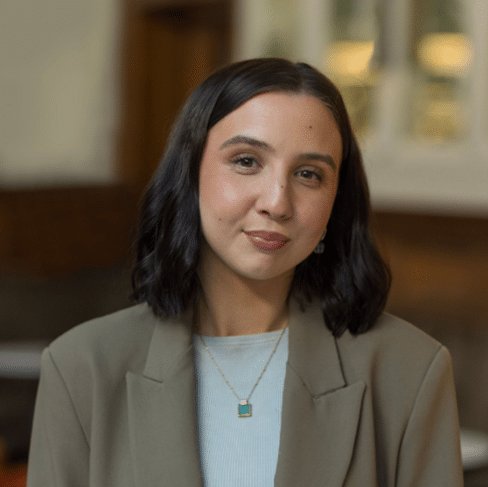Sign-up here to receive the monthly iED bulletin
Sign-up here to receive the monthly iED bulletin

A year ago, I was sitting in a community hall in Bassetlaw, surrounded by local employers, listening as they shared the challenges of finding the right people with the right skills. We sat together discussing their recruitment challenges and skills gaps, and it struck me how open they were in sharing their lived experiences. For me, it was more than just gathering information. It was about connecting with people, hearing what matters to them, and helping shape recommendations that could genuinely support individuals into work.
That day in Bassetlaw has stayed with me.
Not because I had all the answers (far from it!), but because it showed me what economic development is really about: people, places, and the connections that tie them together.
Why I Chose Economic Development
After finishing my degree in Economics at the University of Sheffield, I knew I didn’t want to disappear into a role that kept me locked behind spreadsheets. I wanted to use what I’d learned to create something meaningful and tangible. Economic development felt like the perfect fit: it combines analysis and strategy with collaboration and impact on the ground.
At AMION Consulting, my work spans evaluation, policy, skills and strategy, but what I love most is the variety. One week I might be assessing how a theatre project contributes to culture and identity, and the next I’m guiding a workshop on local skills needs. It keeps me curious, challenged, and constantly learning.
Lessons From the First Year
Looking back, this year has stretched me in ways I couldn’t have imagined. I’ve gone from applying supply-and-demand theory in textbooks to using economic modelling in real projects, while also developing skills I didn’t expect, including facilitation, stakeholder engagement, even strategy development.
I’ve learned that the job is not just about crunching numbers. It’s about shaping outcomes that affect real communities. It’s about listening as much as analysing.
Another unexpected source of inspiration has been seeing more women in leadership roles here at AMION. Having female directors and leaders to look up to has been hugely motivating, and it makes the idea of stepping into those roles one day feel much more attainable.
The Value of the iED
Joining the Institute of Economic Development (iED) has been another turning point. Their CPD course has helped me broaden my understanding of the sector, covering everything from regeneration to inward investment.
But the real standout has been the mentoring scheme. Being paired with a mentor has given me space to reflect, to hear an experienced voice from outside my own organisation, and to share challenges and ambitions openly. Those conversations have been invaluable and have helped me see my own path with greater clarity.
Looking Ahead
If I had to sum up this year, I’d say economic development is anything but narrow. It’s wide-ranging, unpredictable, and deeply purposeful. For someone like me – curious, people-focused, and motivated to make a difference – it’s been the right path.
And when I think back to that day in Bassetlaw, listening to employers talk openly about their challenges, it reminds me why I’m here. Economic development isn’t abstract…it’s about real people, real stories, and creating change that matters in everyday lives.
Megan Smith is a Graduate Consultant at AMION Consulting. AMION is an Engagement Partner at the iED Annual Conference 2025.
Would you like to write for the iED? As part of iED individual and organisation membership, ALL members have the opportunity to publish articles on our website. We are now seeking ideas for contributions from members, including those in our Early Career Network. These can be around any aspect of economic development, insights on work you are undertaking and project successes you would like to share, or any viewpoint you would like to express. If you have an article proposal please email admin@ied.co.uk.